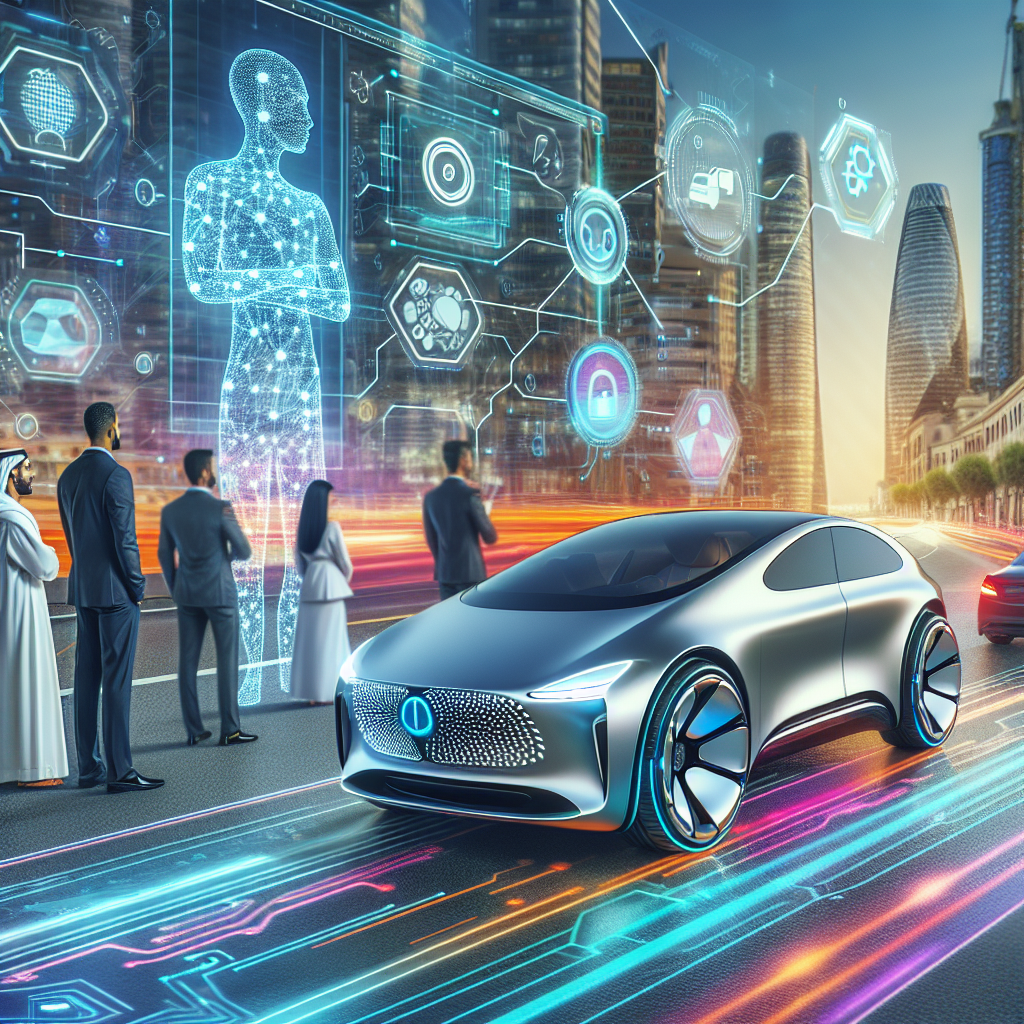The automotive industry is experiencing a paradigm shift driven by artificial intelligence (AI). From enhancing vehicle safety to enabling autonomous driving, AI is at the forefront of this revolution. This article examines the various ways AI is transforming the automotive landscape and what the future holds for this dynamic synergy.
AI in Manufacturing
One of the most significant impacts of AI on the automotive industry is in manufacturing. Car manufacturers are leveraging AI to streamline production processes, reduce costs, and improve quality control.
- Predictive Maintenance: AI-powered systems are used to predict equipment failures before they happen, ensuring minimal downtime and enhancing overall productivity.
- Quality Control: AI technologies like machine learning and computer vision are employed to detect defects or inconsistencies in vehicle components, ensuring high standards of production.
- Supply Chain Optimization: AI algorithms optimize supply chain operations by predicting demand and managing inventory efficiently.
Enhanced Safety Features
AI is making vehicles safer than ever before. Advanced driver-assistance systems (ADAS) powered by AI are designed to mitigate human error, which is a leading cause of road accidents.
- Collision Avoidance Systems: Utilizing sensors and AI algorithms, these systems can detect potential collisions and take preventive actions such as automatic braking or steering adjustments.
- Lane Departure Warnings: AI helps monitor a vehicle’s position on the road and alerts the driver if there is an unintentional lane departure.
- Driver Monitoring Systems: AI analyzes driver behavior and fatigue levels to provide timely warnings, ensuring that the driver stays attentive while on the road.
Autonomous Vehicles
Perhaps the most transformative impact of AI on the automotive industry is the development of autonomous vehicles. Self-driving cars are no longer a futuristic concept but a growing reality, thanks to advancements in AI.
- Sensors and Perception: AI-powered sensors and cameras provide a 360-degree view around the vehicle, enabling real-time perception and decision-making.
- Navigation and Mapping: AI-driven algorithms help autonomous vehicles navigate complex environments, recognizing road signs, traffic lights, and obstacles.
- Continuous Learning: Autonomous systems employ machine learning to continually improve their driving capabilities based on vast amounts of data gathered over time.
Personalized Driving Experience
AI is also enhancing the driving experience by offering customized features tailored to individual preferences.
- Infotainment Systems: AI-powered infotainment systems provide personalized recommendations for music, navigation routes, and climate control based on the driver’s habits and preferences.
- Voice Assistants: AI-based virtual assistants like Alexa and Siri can control various vehicle functions through voice commands, making the driving experience more intuitive and hands-free.
- Adaptive Cruise Control: AI enables adaptive cruise control systems to automatically adjust the vehicle’s speed based on traffic conditions, ensuring a smoother and more comfortable ride.
Challenges and Ethical Considerations
While AI presents numerous opportunities, it also poses certain challenges and ethical dilemmas.
- Data Privacy: The extensive data collected by AI systems raises concerns regarding user privacy and data security.
- Regulatory Compliance: The regulatory landscape is still evolving, with governments across the globe working to establish guidelines and standards for AI in the automotive sector.
- Job Displacement: The automation of tasks previously performed by humans could lead to job displacement, necessitating a balanced approach to workforce management.
The Road Ahead
The integration of AI into the automotive industry is still in its nascent stages, but the potential is enormous. As technology continues to advance, we can expect even more sophisticated AI applications that will further revolutionize how we drive, manufacture, and interact with vehicles.
AI is undoubtedly reshaping the automotive industry, making it smarter, safer, and more efficient. Stakeholders, including manufacturers, regulatory bodies, and consumers, need to collaborate to harness the full potential of AI while addressing the associated challenges responsibly.

